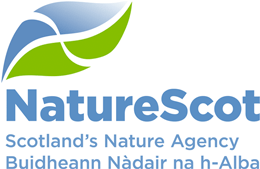28 November, 2014
Response to Guardian/Observer article about wildcats
We feel we must respond to Kevin McKenna’s inaccurate and scaremongering comment piece about Scottish wildcats on 23rd November. Inaccurate press coverage is causing confusion and sadly undermining public support which would otherwise go to Scottish wildcat conservation.
The Scottish Wildcat Conservation Action Plan is backed by a broad partnership of organisations including the country’s leading experts and practitioners. The steering group includes Scottish Natural Heritage; Cairngorms National Park Authority; National Museums Scotland; Royal Zoological Society of Scotland; Scottish Gamekeepers Association; The Royal (Dick) School of Veterinary Studies - Edinburgh University; National Trust for Scotland, and the Scottish Wildlife Trust.
SNH’s work is subject to rigorous peer-review, and our commissioned reports on Scottish wildcats have all been subject to independent and thorough scientific review. This includes the recently published evidence supporting selection of wildcat priority areas. We aren't aware of any scientific information which the Scottish Wildcat Association or Wildcat Haven have published that would challenge the work being taken forward by the partnership.
SNH has consulted widely and taken the views of the broad conservation and land management community into account when agreeing the action plan. There are a minority of individuals, cited in Mr McKenna's article, who think attempting 100% genetic purity is what matters, whereas the balance of opinion among the 30 organisations signed up to the action plan is that this is not a credible aim.
Domestic cats have been present in Scotland for more than 2500 years. It's extremely likely that there will be some domestic cat DNA even in the wildcats in our most remote areas. We’re not aware of any evidence produced by Wildcat Haven or anyone else, which would support adopting a purity threshold that excluded wildcats with any level of domestic ancestry. At the other end of the debate, working closely with the partnership are renowned ecologists and naturalists who consider the genetic purity of individual cats is not the only consideration for effective conservation of this iconic species.
As naturalist and author, Sir John Lister-Kaye OBE, states, ‘The consensus among those of us who have been active field naturalists in the Highlands for many years, consider it most unlikely that we will find 100% pure wildcats anywhere. In that case we have to work with the best wildcat stock we have got, based on distinct wildcat appearance and a strong predominance of wildcat genes. The purist approach is much more likely to produce inbreeding problems – the last thing our remaining wildcats need. There has to be common sense from an ecological point of view.’
This pragmatic approach is common where hybridisation poses a problem for a rare species. For example, there are domestic dog genes in many wolf populations, domestic pig genes in wild boar, Japanese sika genes in our red deer, and domestic ferret genes in polecats – yet there is widespread public and scientific acceptance of all of these as valued wild populations.
Finally, in scoping the wildcat priority areas, the James Hutton Institute launched a questionnaire of locals’ views on a range of wildcat conservation issues on our behalf. Of 103 respondents, 74% indicated they agreed that if our remaining wildcats are not pure, we should protect those closest to the native form. That means the approach taken is pragmatic and also reflects public and scientific opinion.
Contact information
- Name
- SNH Media
- snhmedia@snh.gov.uk
NatureScot is Scotland's nature agency. We work to enhance our natural environment in Scotland and inspire everyone to care more about it. Our priority is a nature-rich future for Scotland and an effective response to the climate emergency. For more information, visit our website at www.nature.scot or follow us on X at https://x.com/NatureScot
’S e NatureScot buidheann nàdair na h-Alba. Bidh sinn a’ neartachadh àrainneachd na h-Alba agus a’ brosnachadh dhaoine gu barrachd suim a chur ann an nàdar. Tha e mar phrìomhachas againn gum bi nàdar na h-Alba beairteach agus gun dèilig sinn gu h-èifeachdach le èiginn na gnàth-shìde. Tha an tuilleadh fiosrachaidh aig www.nature.scot no air X aig https://x.com/NatureScot
